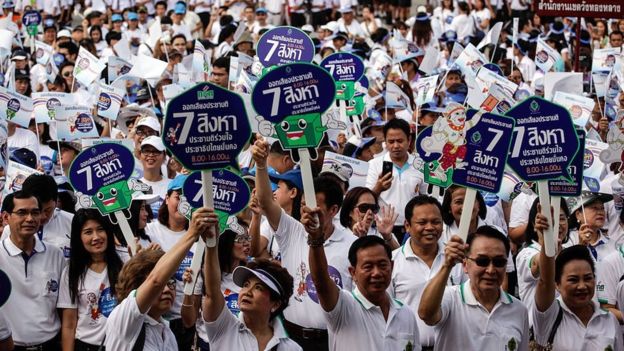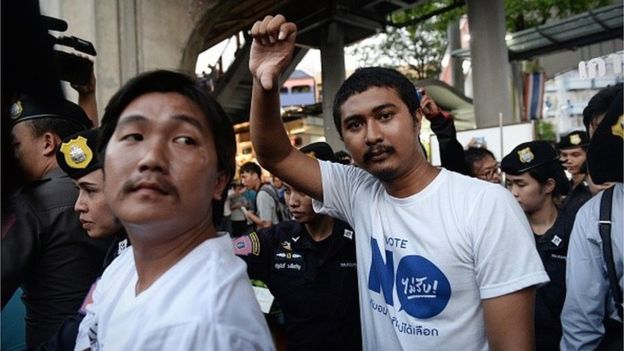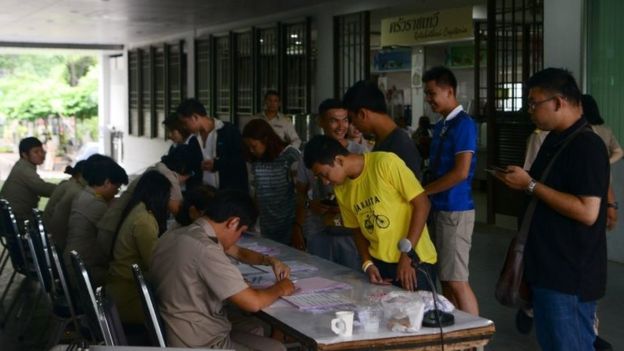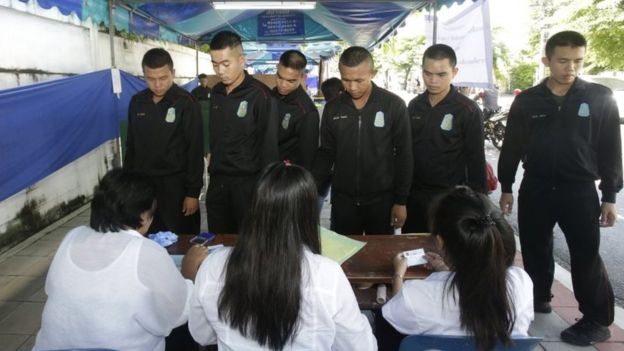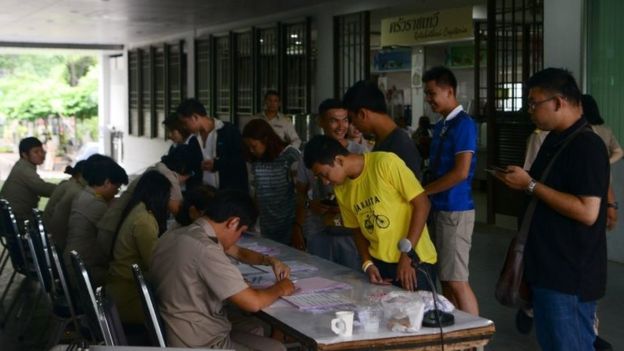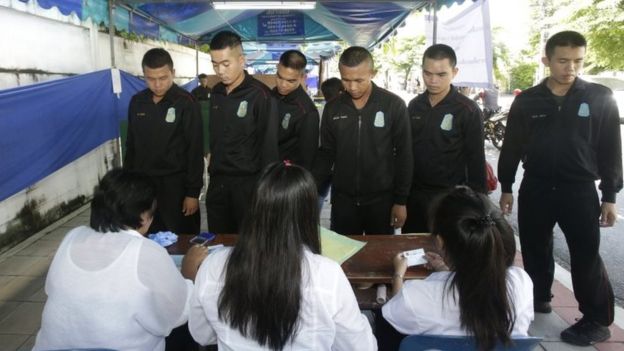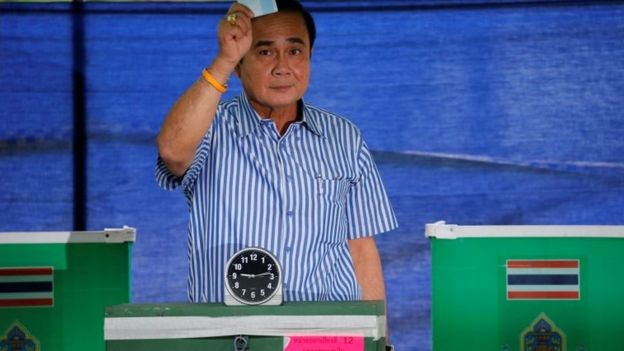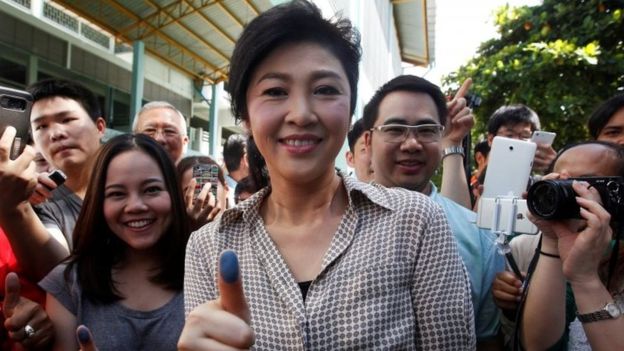Thailand votes in referendum on new constitution

People across Thailand are voting in a referendum on a new constitution, written by a military-appointed committee.
The military threw out the old constitution when it took power in 2014, after months of political instability and sporadic violence.
It says that if approved, the constitution will be a major step towards returning to full democracy.
But opponents call the vote unfair as campaigning has been restricted.
The way this referendum has been run by the military authorities has been widely condemned by human rights groups because of the ban on campaigning, which has seen dozens of people detained and charged.
As a result, public knowledge of the draft constitution is limited; many Thais say they have little idea what is in it.
If it is approved, the military government has promised that a general election could be held by late next year, restoring democratic government.
But critics have argued that the draft will create a crippled democracy, with the armed forces and an appointed senate retaining decisive influence over future elected governments.
The Referendum Act, brought in to govern the referendum process, criminalises "anyone who disseminates text, pictures or sounds that are inconsistent with the truth".
Rights groups have said that the new law "restricts expression and access to information about the draft constitution".
Offenders face a maximum sentence of 10 years in prison. Dozens of people have been charged in connection with the referendum.
Independent election observer groups have requested accreditation to monitor the vote, but this has not been granted by the Election Commission.
What are Thais voting on?
The 40 million voters will answer yes or no to the question: Do you accept the draft constitution? They will also be asked a supplementary question, whether or not the appointed senate should be allowed to join the lower house in selecting a prime minister.
If the majority of voters say yes, the draft becomes the constitution, enhancing the military government's legitimacy in the run-up to an election which Prime Minister Prayuth Chan-ocha, who led the 2014 coup, has promised will happen next year.
If the constitution does not pass, what will happen is uncertain, but the military government will remain in control.
What are the key changes in the draft?
The military argues that corrupt politicians are to blame for the last decade of instability and divisive politics.
Made public in March, the draft proposes a voting system which would make it difficult for a single political party to win a majority of seats in the lower house.
One of the most controversial clauses calls for the 250-seat senate to be fully appointed by the military government.
Before the coup, just over half of the upper house seats were directly elected and the rest were appointed.
The change means military-appointed lawmakers would have a decisive say in the likely event that no party holds a majority in the lower house, or National Assembly of Thailand.
Critics say the amendments greatly enhance the power of the military, and ensure it will have a grip over Thai politics for at least five more years.
Why is this happening?
Thailand has had more than a decade of fractured politics and instability that has sometimes spilled over into violence on the streets.
In this time, parties linked to former Prime Minister Thaksin Shinawatra have won every election, but their governments have all been ousted either by court rulings or military coups.
Mr Shinawatra fled into self-imposed exile in 2008 to escape a criminal charge of abusing his power, for which he was later convicted in absentia.
His sister, Yingluck Shinawatra, became prime minister in 2011 but was forced to resign by the Constitutional Court just days before the military took power.
Политика конфиденциальности | Правила пользования сайтом
